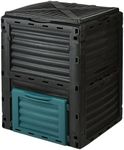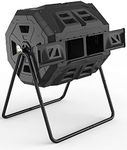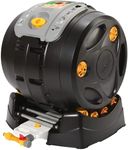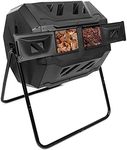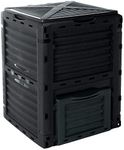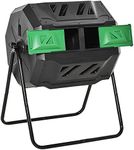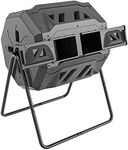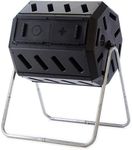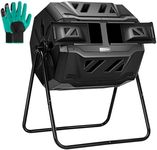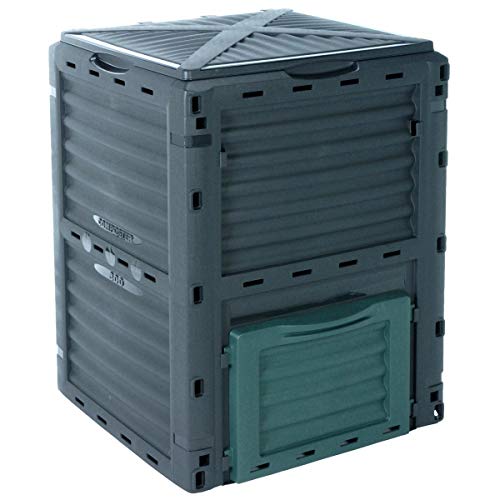Buying Guide for the Best Rotating Composter
Choosing the right rotating composter can make your composting process more efficient and enjoyable. A rotating composter is a great tool for turning kitchen scraps and yard waste into nutrient-rich compost for your garden. When selecting a rotating composter, consider factors such as size, material, ease of use, and aeration. Understanding these key specifications will help you find a composter that fits your needs and lifestyle.Size/CapacityThe size or capacity of a rotating composter is crucial because it determines how much waste you can compost at one time. Composters come in various sizes, typically measured in gallons or liters. Small composters (up to 30 gallons) are suitable for individuals or small households with limited waste. Medium-sized composters (30-60 gallons) are ideal for average households, while large composters (over 60 gallons) are best for larger families or those with significant yard waste. Consider your household size and the amount of waste you generate to choose the right capacity.
MaterialThe material of the composter affects its durability and performance. Most rotating composters are made from plastic or metal. Plastic composters are lightweight, resistant to rust, and often more affordable, but they may not be as durable in extreme weather conditions. Metal composters are sturdy and long-lasting but can be heavier and prone to rust if not properly coated. Choose a material based on your climate and how often you plan to move the composter.
Ease of UseEase of use is important for ensuring that you can easily rotate and manage your compost. Look for features like a sturdy handle or crank for easy turning, and a design that allows for simple loading and unloading of materials. Some models have dual chambers, which can be beneficial for continuous composting. Consider how much physical effort you're willing to exert and whether you need features that simplify the composting process.
AerationAeration is a key factor in the composting process as it helps to speed up decomposition by providing oxygen to the microorganisms breaking down the waste. Rotating composters are designed to enhance aeration through their tumbling action, but some models have additional features like air vents or aeration spikes. If you want faster composting results, look for a composter with good aeration features. Consider how quickly you want to produce compost and choose a model that supports efficient aeration.
Location and SpaceThe location and space available for your composter can influence your choice. Consider where you plan to place the composter and ensure you have enough space for it to rotate fully. Some composters are designed to fit in smaller spaces, while others require more room. Think about your garden layout and choose a composter that fits comfortably in your available space without obstructing other activities.

